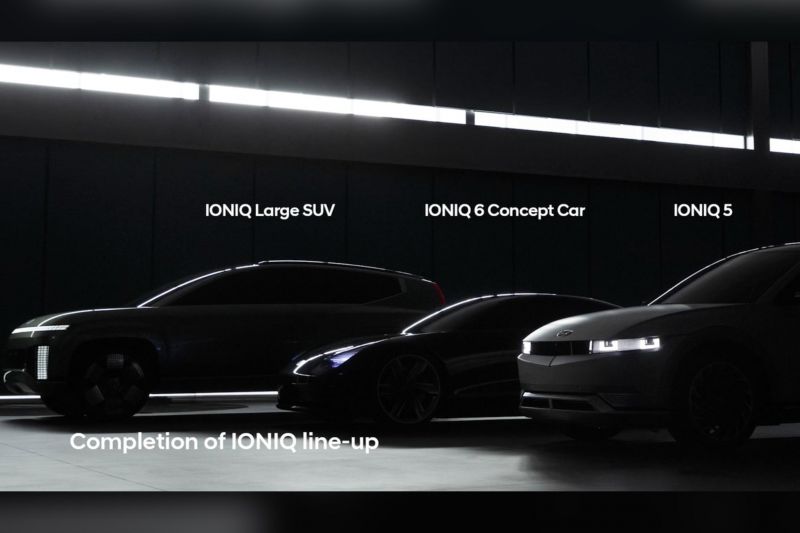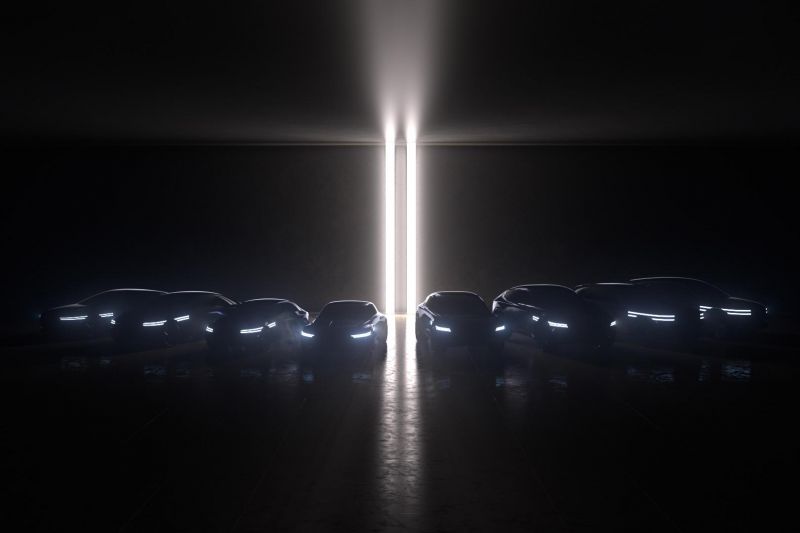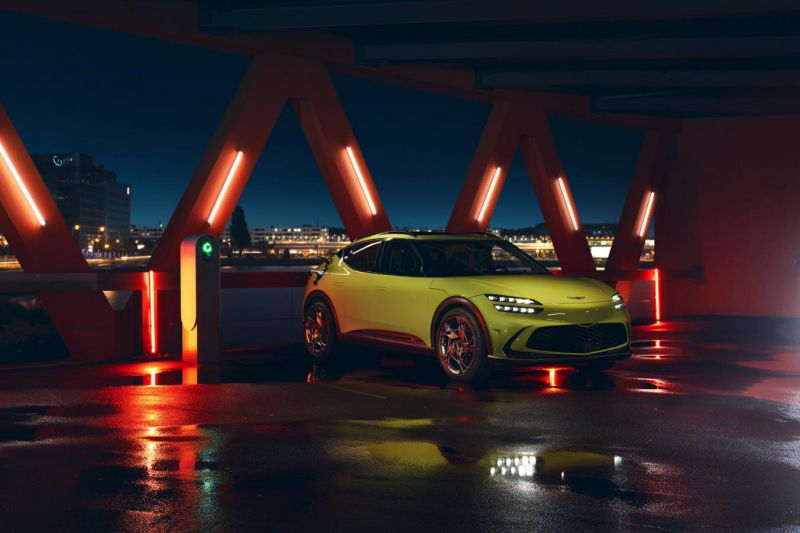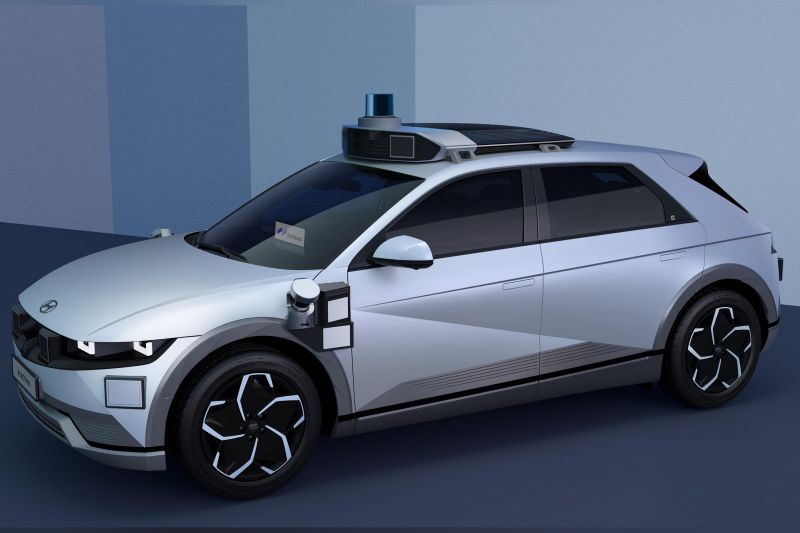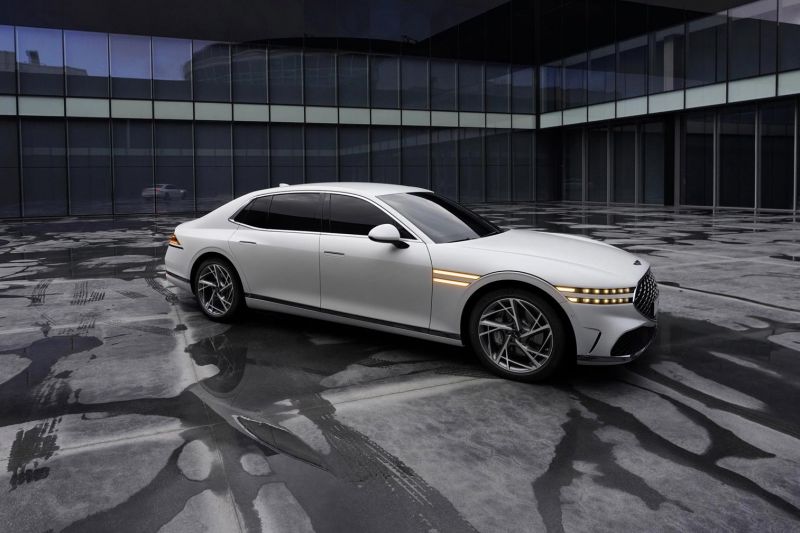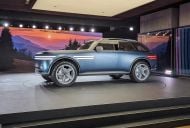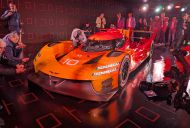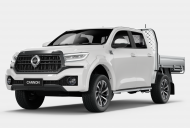Hyundai Motor wants to own seven per cent of the global electric vehicle (EV) market by 2030, and to get there it’s planning an onslaught of new EVs.
As part of a 19.4 trillion won (A$22.1 billion) investment in electrification through 2030, it’s aiming to sell 1.87 million EVs globally by that year.
The targets were announced by president and CEO Jaehoon Chang as part of the 2022 CEO Investor Day forum.
The Hyundai brand will receive 11 new EVs: three sedans, six SUVs, one light commercial vehicle, and one “new type model”.
The company had previously announced only the Ioniq 6 sedan, which goes on sale this year, and the large Ioniq 7 crossover launching in 2024.
Genesis will receive six EVs of its own: two passenger cars and four SUVs, the latter including the Electrified GV70 launching this year.
The luxury brand says all newly launched models beginning from 2025 will be electrified.
Like Volkswagen, Hyundai Motor is planning to introduce a standardised platform to use across all its EVs.
Called the Integrated Modular Architecture (IMA) and set to debut in 2025, it’s an evolution of the current E-GMP architecture underpinning the likes of the Hyundai Ioniq 5.
IMA has been designed to standardise not only the chassis but also the battery system and motor, and can be used for EVs across all segments.
Standardised battery packs can be installed regardless of the model, improving cost efficiency. Hyundai also says there’ll be benefits in energy density and charging times.
There’ll be five types of electric motors to choose from, while IMA will also underpin “purpose-built vehicles” like robotaxis.
The KRW 19.4 trillion investment includes expanding EV production capability, constructing charging stations, and engaging in strategic technology alliances.
Hyundai is beginning EV production in Indonesia this year, joining existing EV manufacturing in Korea and the Czech Republic.
It’s aiming to obtain more than 50 per cent of its next-generation lithium batteries from strategic alliances with battery companies in major regions by 2025 as it diversifies its battery sourcing.
It’s also working with partners in the development of solid-state batteries.
This investment in EV platforms and manufacturing is part of a broader KRW 95.5 trillion (A$108.8 billion) investment for “future businesses” by 2030, including KRW 12 trillion (A$13.67 billion) for software and KRW 39.1 trillion (A$44.5 billion) for research and development.
Hyundai had previously announced it was aiming to sell 560,000 EVs globally by 2025.
It’s targeting an operating profit margin of at 10 per cent or higher in EV businesses, plus a consolidated operating profit margin of 10 per cent, up from a projected 5.5-6.5 per cent this year.
It says it can get there by “enhancing competitiveness in hardware and software capabilities with an expanded line-up”.
In terms of software, Hyundai says it plans to apply over-the-air updates to all new models launched from the end of 2022, expanding to all models by 2025.
It’s rolling out its Highway Driving Pilot Level 3 autonomous driving functionality in the second half of this year, starting with the flagship Genesis G90.
It’ll expand the service area of the Ioniq 5-based robotaxi it operates as part of a joint venture with Aptiv in 2023, and will start self-driving delivery services this year with Uber Eats.
After 2030, it expects revenue from software-related businesses to account for approximately 30 per cent of total sales.





